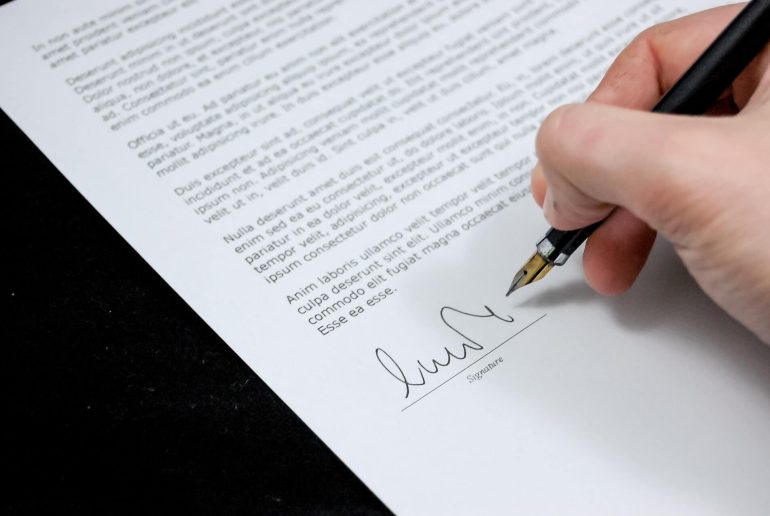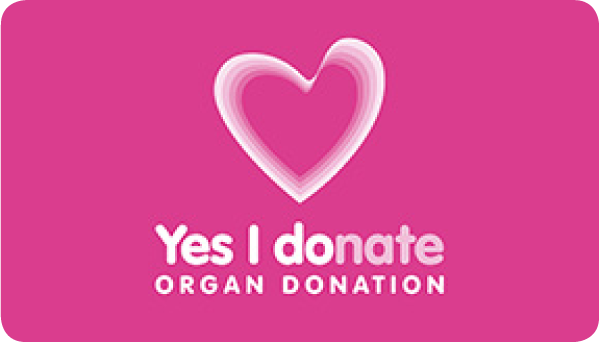THIRD – (4th November) Coronavirus Advice Letters for the Extremely Vulnerable from the NHS

In case you have not received a copy, we have posted below a version of the letter sent to all those registered as extremely clinically vulnerable to COVID-19. Unlike the previous 2 letters, this was received by email (probably because the recipient provided the government their email address when they registered online). We expect if you did not provide an email address, you will receive a copy by post. If you are a dialysis or transplant or dialysis patient and are not already registered, please visit www.gov.uk/coronavirus-extremely-vulnerable or call 0800 0288327.

ADDRESSEE
Date: 04-11-2020
Your NHS number: **********
Dear PATIENT NAME,
On 31 October, the Prime Minister announced new national restrictions to help control the spread of COVID-19. We are writing to you because you have previously been identified as someone thought to be clinically extremely vulnerable and at highest risk of becoming very unwell if you catch COVID-19. This letter contains important advice on how to protect yourself and how to access further support.
Coronavirus cases are rising rapidly across the whole of the UK, and that is why, from 5 November until 2 December, the Government has taken the following action:
- Requiring people to stay at home, except for specific purposes.
- Preventing gathering with people you do not live with, except for specific purposes.
- Closing certain businesses and venues, like hospitality and non-essential retail.
The new national restrictions are rules that apply to everyone and which everyone must follow. The full details of these rules can be found online at https://www.gov.uk/coronavirus.
In addition, the Government is issuing new guidance to clinically extremely vulnerable people. This is set out in the following pages. Whilst this is not a return to the very restrictive shielding advice you may have followed earlier in the year, you are strongly advised to follow these extra precautionary shielding measures to help keep yourself safe. This remains advice, not the law.
You should stay at home as much as possible but are encouraged to go outdoors for exercising and attending health appointments. You are strongly advised to work from home. If you cannot work from home, then you should not attend work. You may be eligible for the Coronavirus Job Retention Scheme (furlough). This letter is a formal shielding notification and can act as evidence for your employer to show that you cannot work outside your home until 2 December, including for statutory sick pay (SSP) purposes.
The new national restrictions, and this specific advice will apply across England for four weeks up to Wednesday 2 December. At the end of this period, we expect to return to guidance that is specific to your region, based on the latest data. We will write to you again with further information before then.
Please remember that the NHS is open, and we urge you to continue to access all the NHS services that you need. It is safer for you to use the NHS than to try to manage alone.
If you are concerned about the impact of COVID-19 on your health, speak to your GP, hospital clinician or use NHS111. Further information on how to access help, including how to register for support, can be found in the attached guidance.
We know that this is a difficult time and many people are making significant sacrifices. Thank you for your efforts to keep yourself and others safe.
Yours sincerely,
MATT HANCOCK
Secretary of State for Health and Social Care
ROBERT JENRICK
Secretary of State for Housing, Communities and Local Government
Guidance for clinically extremely vulnerable people
This guidance is for everyone in England who has been identified as clinically extremely vulnerable. The full guidance can be found online at https://www.gov.uk/coronavirus. This is additional guidance for clinically extremely vulnerable people, to help you protect yourself from the virus by following these shielding measures.
This guidance applies to clinically extremely vulnerable individuals only. Others living in a household with someone who is clinically extremely vulnerable are not advised to follow this guidance.
Socialising
The new National Restrictions from 5 November, which apply to everyone, mean that you must not leave or be outside of your home, except for limited purposes which are set out in that guidance.
We are advising clinically extremely vulnerable people to stay at home as much as possible, except to go outdoors for exercise or to attend essential health appointments. You may wish to meet up with one other person from outside your household or support bubble to exercise outdoors, for example in an outdoor public place, but we suggest that you always try to do so as safely as possible.
Try to keep all contact with others to a minimum and avoid busy areas. Whenever you go out continue to maintain strict social distancing, wash your hands regularly and avoid touching your face.
You should also try to stay 2 metres away from other people within your household, especially if they display symptoms of the virus or have been advised to self-isolate.
Work
You are strongly advised to work from home. If you cannot work from home, then you should not attend work for this period of restrictions. If you cannot attend work for this reason, you may be eligible for Statutory Sick Pay (SSP), Employment Support Allowance (ESA) or Universal Credit. Other eligibility criteria will apply.
You will be able to use this letter as evidence for your employer to show that you should not work outside your home until 2 December, including for statutory sick pay purposes. You can also use this letter for the Department for Work and Pensions to show that you are advised to follow shielding guidance for ESA or Universal Credit purposes.
If you were on payroll before 30 October 2020 you may also be eligible for the Coronavirus Job Retention Scheme (furlough), which is being extended until 2 December. Please speak to your employer if you think you are eligible.
Other people you live with who are not clinically extremely vulnerable themselves can still attend work if they cannot work from home, in line with the wider rules set out in the new National Restrictions from 5 November.
Education settings
More evidence has emerged that shows there is a very low risk of children becoming very unwell from COVID-19, even for children with existing health conditions. Most children originally identified as clinically extremely vulnerable no longer need to follow this advice. Speak to your GP or specialist clinician if you have not already done so, to understand whether your child should still be classed as clinically extremely vulnerable.
Those children whose doctors have confirmed they are still clinically extremely vulnerable are advised not to attend school whilst this advice is in place. Your school will make appropriate arrangements for you to be able to continue your education at home. Children who live with someone who is clinically extremely vulnerable, but who are not clinically extremely vulnerable themselves, should still attend school.
Travel
You should avoid all non-essential travel by private or public transport, this includes not traveling to work, school or the shops. You should still travel to hospital and GP appointments unless told otherwise by your doctor. If you need help to travel to an appointment, you can speak to your health care professional to arrange transport support. They can arrange this with NHS Volunteer Responders.
Shopping
You are advised not to go to the shops. Use online shopping if you can, or ask others to collect and deliver shopping for you (friends, family, or a volunteer, including NHS Volunteer Responders). If you already have a priority delivery slot with a supermarket that will continue, you do not need to do anything further.
If you cannot access food, your local council can offer support. This may include helping you to request a priority supermarket delivery slot (if you do not already have one) or help with shopping. See below for details on how to register for support.
Medicines
You are advised not to go to a pharmacy.
You are encouraged in the first instance to ask a friend, family member, carer or a volunteer (for example one of the NHS Volunteer Responders) to collect your medicines for you. If none of these are available, then you will be eligible for free medicines delivery. Please contact your pharmacy to inform them that you are clinically extremely vulnerable and need your medicines delivered, and they will arrange this free of charge.
Accessing care and support
It is important that you continue to receive the care and support you need to help you stay safe and well.
We urge you to continue to seek support from the NHS and other health providers for your existing health conditions and any new health concerns.
You can access a range of NHS services from home, including ordering repeat prescriptions or contacting your health professional through an online consultation. To find out more visit https://www.nhs.uk/health-at-home, or download the NHS App at https://www.nhs.uk/using-the-nhs/nhs-services/the-nhs-app/.
Please make sure your GP has your most up to date contact details, including your home address and, if possible, a personal email address, so that we know how to contact you.
If you have an urgent medical need, call NHS 111 or, for a medical emergency, dial 999.
If you need to have a test for COVID-19 then you are able to attend a test site. You may want to think about attending at a quieter time or asking for a home test to be sent to you, in order to reduce your contacts with other people. It is important that you have your test. More information about getting a COVID-19 test can be found at https://www.gov.uk/get-coronavirus-test.
If you do need to receive care in person, you can. Your local NHS services are well prepared and will put in measures to keep you safe.
It is also really important to look after your mental health. Go to the Every Mind Matters website for advice and practical steps that you can take to support your wellbeing and manage your mental health during this pandemic. If you or someone you care for are experiencing a mental health crisis, we urge you to make contact with a local health professional immediately.
Any carers or visitors who support you with your everyday needs or those of a child or young person in your care can continue to visit. They should follow social distancing guidance where close or personal contact is not required.
If you need any additional support to help you to follow this guidance, your local council may be able to help. You can contact your council and register for support at the Shielding Support website mentioned below.
You should also continue to access support from local charities and organisations, as well as NHS Volunteer Responders. As well as helping with shopping and medicines delivery, NHS Volunteer Responders can help with a regular, friendly phone call, and transport to and from medical appointments.
Call 0808 196 3646 between 8am and 8pm to arrange support or visit NHS Volunteer Responders website.
Registering for Support
You will be able to use a new online service to register yourself, or on behalf of someone else, to:
- request access to a priority supermarket delivery slot (if you have already got priority supermarket deliveries, you will keep them).
- tell your council if you need support in order to follow this guidance that you are unable to arrange yourself and cannot be provided by friends, family or other support networks
- make sure your details such as your address are up to date
This new online service can be found at https://www.gov.uk/coronavirus-shielding-support and is now live for you register for support. You’ll be asked for your NHS number, which you can find at the top of this letter. It is helpful if you register even if you do not have any support needs at this time so we know to focus on caring for others who need it. You can log in and update your needs if circumstances change at any time.
If you need to register your needs by phone, or have an urgent need, contact your local council directly.
Find out what help you might be able to get from your local council at https://www.gov.uk/coronavirus-local-help.




